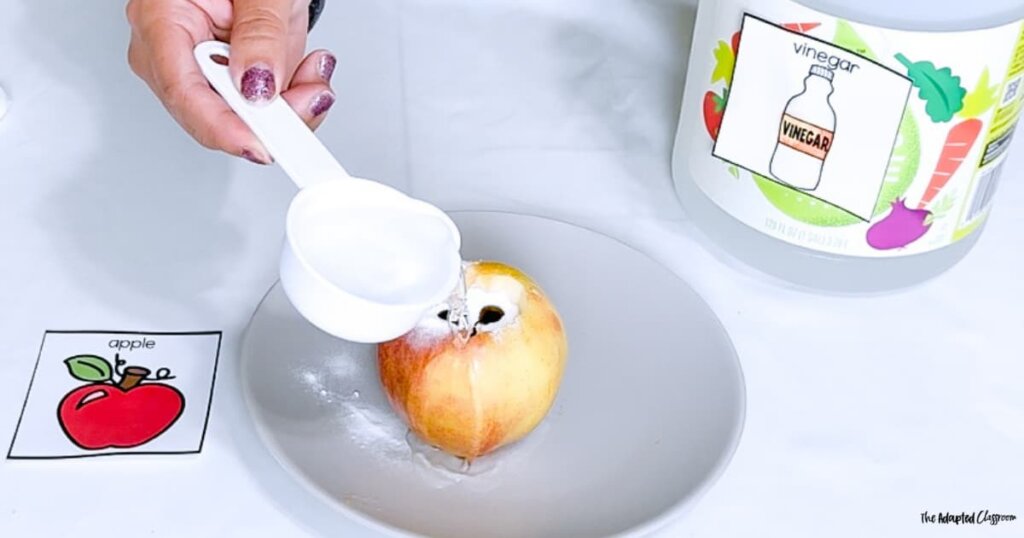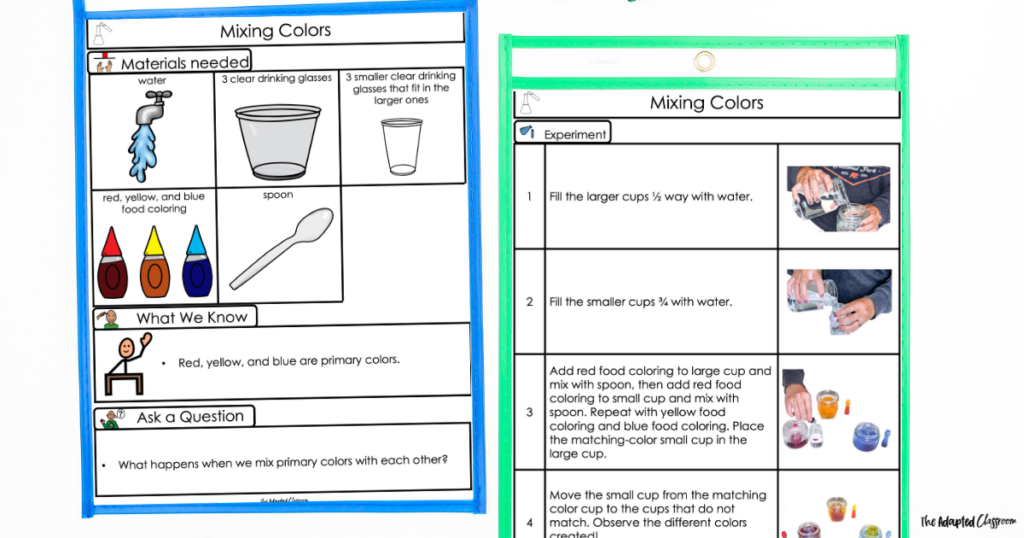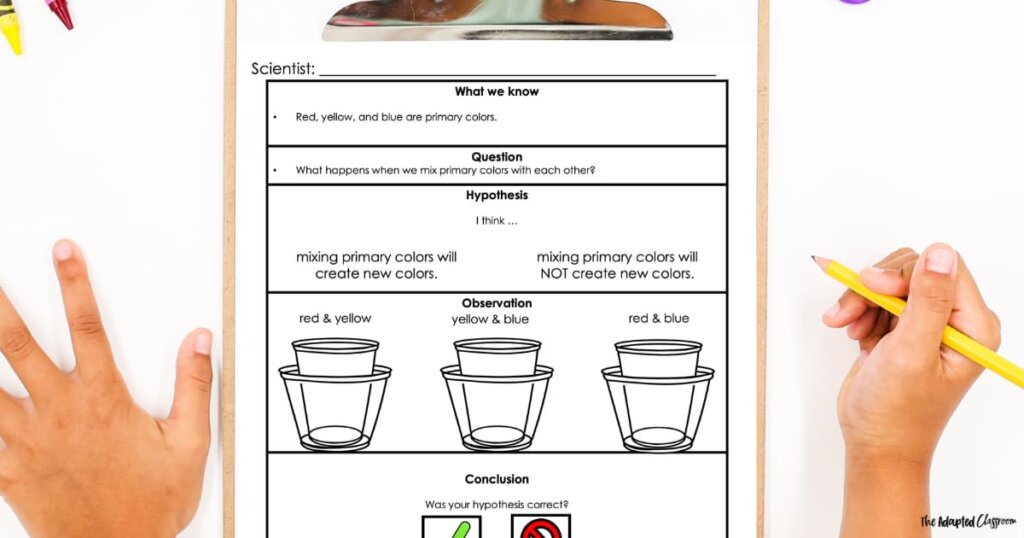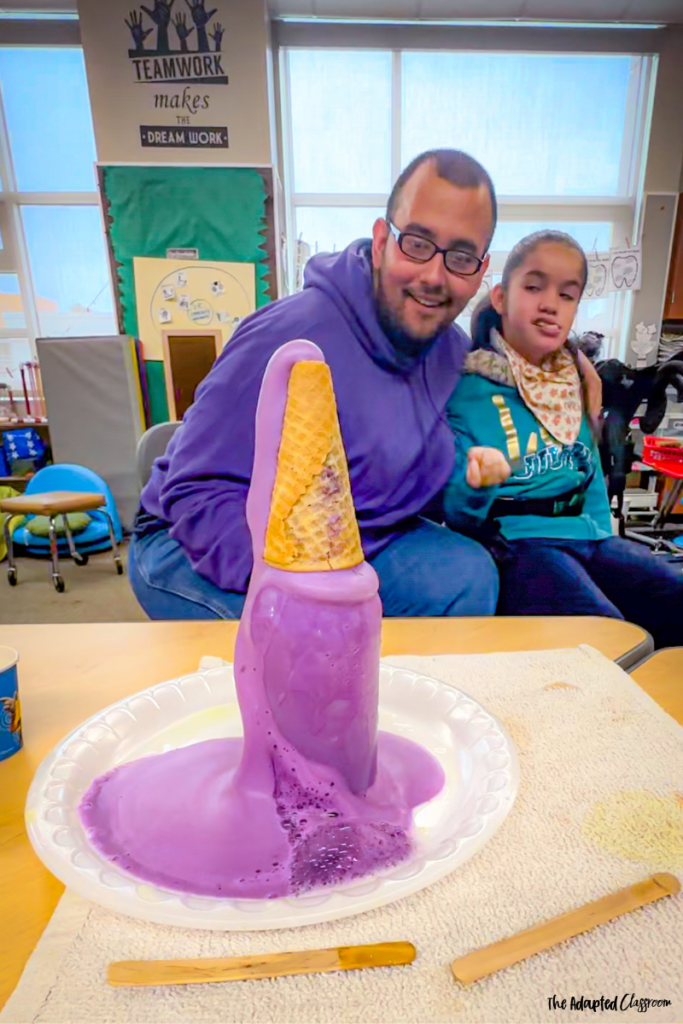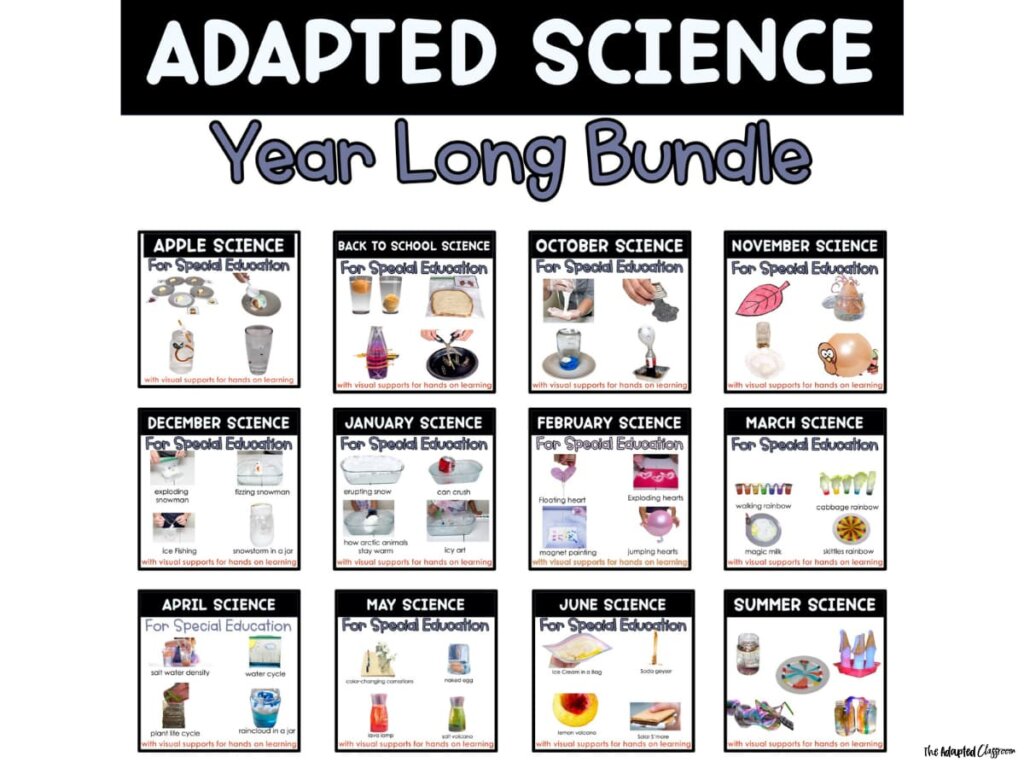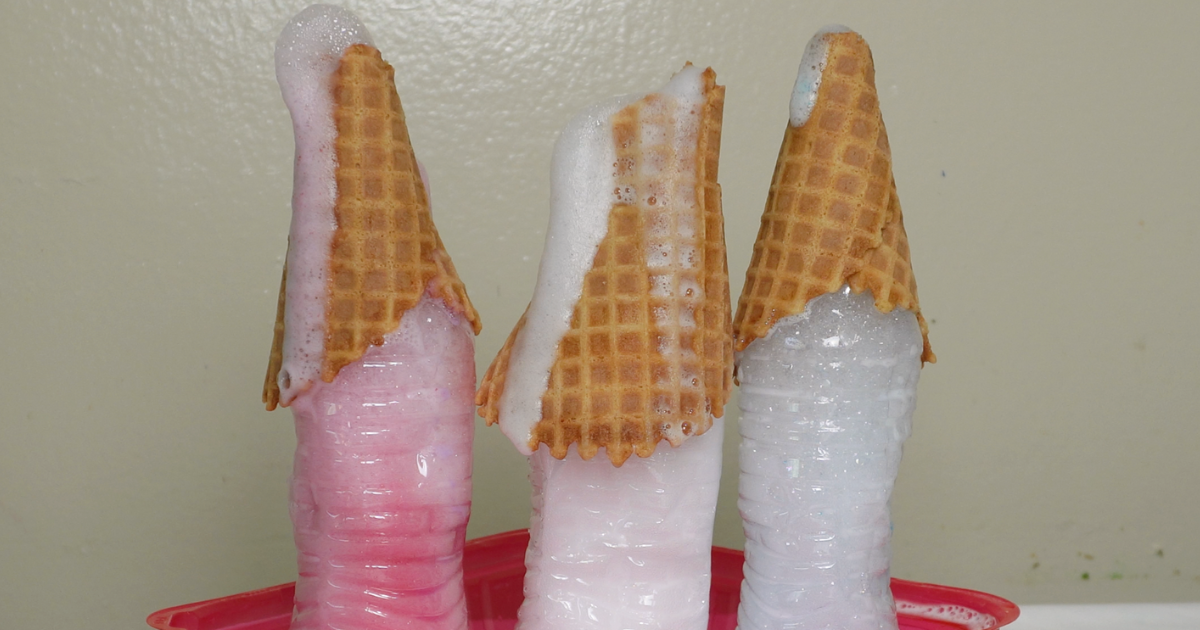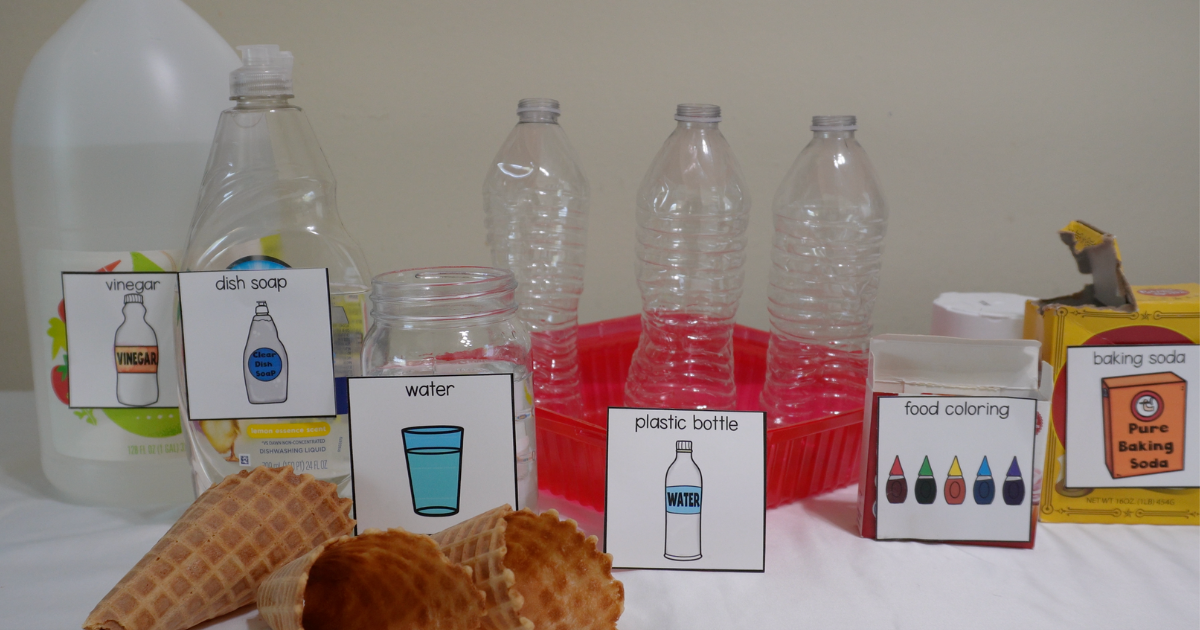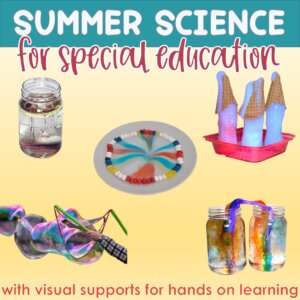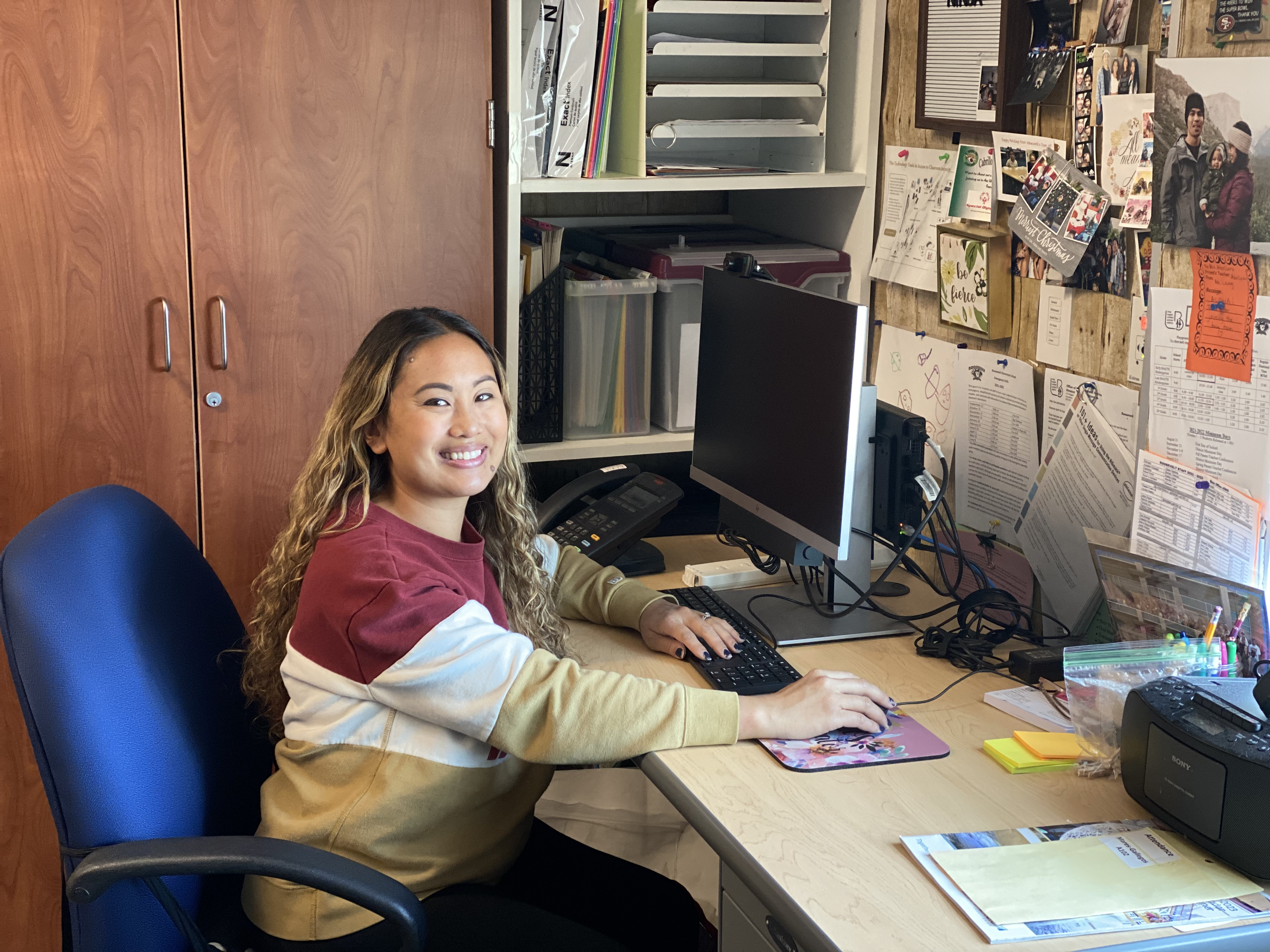Year-Long Elementary Adapted Science Curriculum
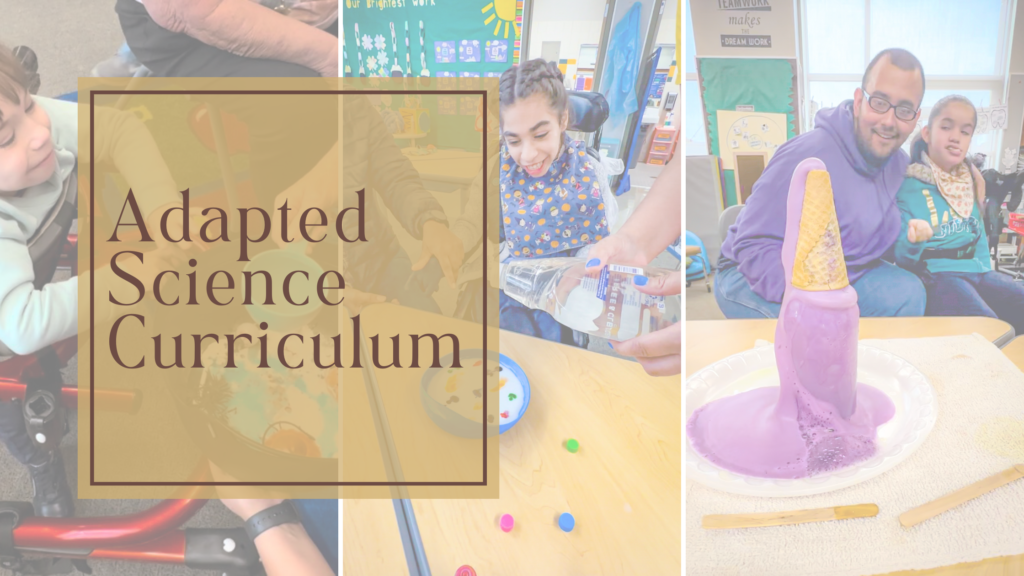
Adapted Science Curriculum for Special Education
Do you teach science in your elementary special education classroom? Are you tired of modifying everything from the general education curriculum only to find that most activities are still too difficult for your severe special needs students? Or maybe you are tired of spending hours scouring the internet for adapted science curriculum or trying to come up with your own science activities for your special needs students?
My hope is that this post will be your saving grace and you will find EVERYTHING that you need to teach fun and engaging science lessons to your severe special education class. Let’s dive in!
Teaching Science in Special Education to Severe Special Needs Students
Teaching science is part of the curriculum for most schools, however, I have always struggled to find science activities that actually engage my severe special needs learners. A lot of my students are working at a functional academic level and use AAC (augmentative and alternative communication) to communicate. I have found that most of the science activities out there just do not work for my student’s unique needs.
YOU MIGHT ALSO LIKE: 5 Tips for Using AAC in the Classroom
Since I am a firm believer that my students deserve the right to have a fun and engaging science curriculum that actually gets them excited about learning different science concepts, I decided to create different science experiments and curriculum for more severe special needs learners! This is how the Adapted Science Curriculum was born!
Adapted Science for Elementary Special Education
The Year-Long Adapted Science Curriculum is perfect for your severe or mild-moderate learners in special education. These adapted science experiments follow the scientific method and use simple household materials that you most likely already have at home or school. The goal of these adapted science experiments are that all students, no matter how severe their disability is, can participate in science curriculum like their peers, learn and have fun.
What is Included in the Elementary Life Skills Science Curriculum?
Visual Supports with Real Pictures for Hands On Support in Science
Students on the autism spectrum and students with severe cognitive disabilities benefit immensely from visual supports, especially when pictures of real everyday objects are used. Each experiment has step-by-step visual directions for what students need to do to set up each experiment, which helps make this resource much more adaptive for special needs learners.
Special Education Science Worksheets that Follow the Scientific Method
Every science experiment includes hands-on worksheets for your students in special education to follow along. These science worksheets encourage kids to create a hypothesis based on what they think the outcome of the experiment will be, just like in a typical science experiment.
Visual Instructions to Make it Easy for Students to Follow Along
Each experiment has step-by-step clear visual directions for what students need to do to set up each experiment. This makes the experiments simple for students to follow along and use the steps to guide them on what to do next. In turn, this helps with sequencing tasks and promoting independence in the classroom.
12 Themed Units for Teaching Science in Special Education with 49 Experiments total
Pro tip: Make Fridays “Fun Fridays” for the entire school year and your science planning is complete with an experiment ready to conduct every single week! For example, check out this ice cream volcano science experiment that we did in my classroom earlier this year!
Visual List of Materials Needed for Each Science Experiment
Most items and materials needed are simple household items that you will most likely already have. Remember that you could always ask parent volunteers to send in items also so that you are not spending a lot of money out of your own pockets!
Life Skills Science Curriculum for the Entire Year
I hope you and your students find the Year-long Adapted Science Experiments fun, engaging and most of all-useful! Remember that the more fun you have while teaching, the more your students will learn and be excited!
Will you be trying the adapted science curriculum?
Comment below and let me know if you do!
Happy teaching!
Rhose

